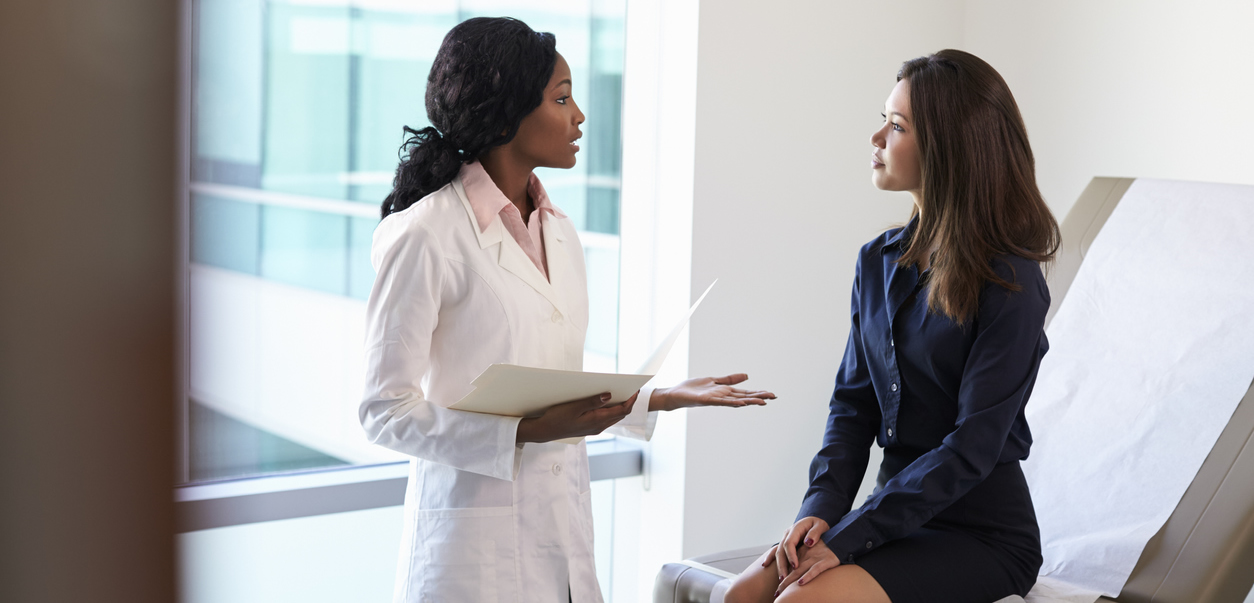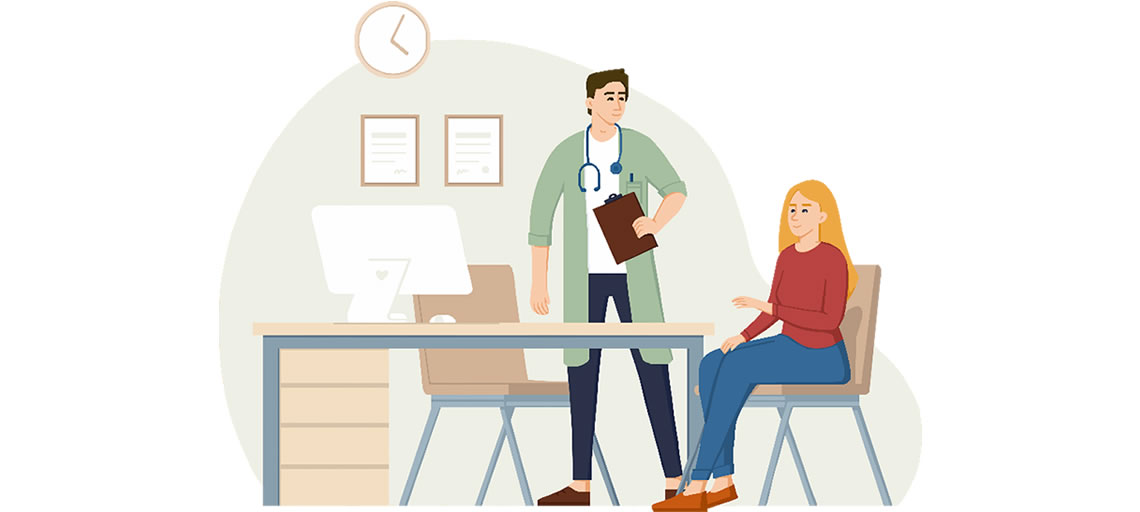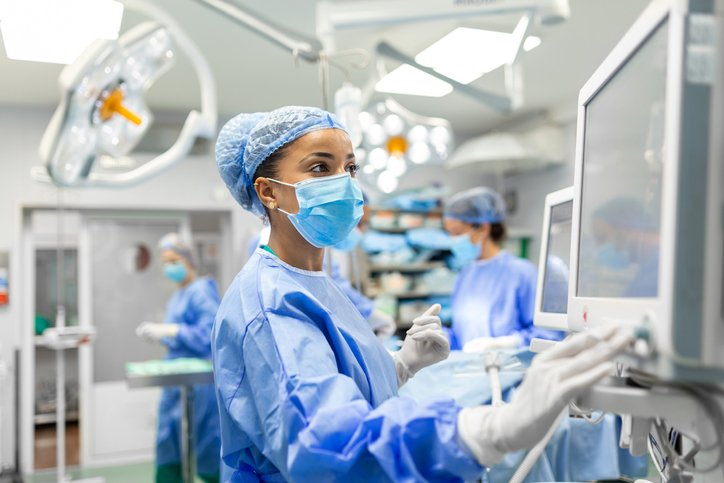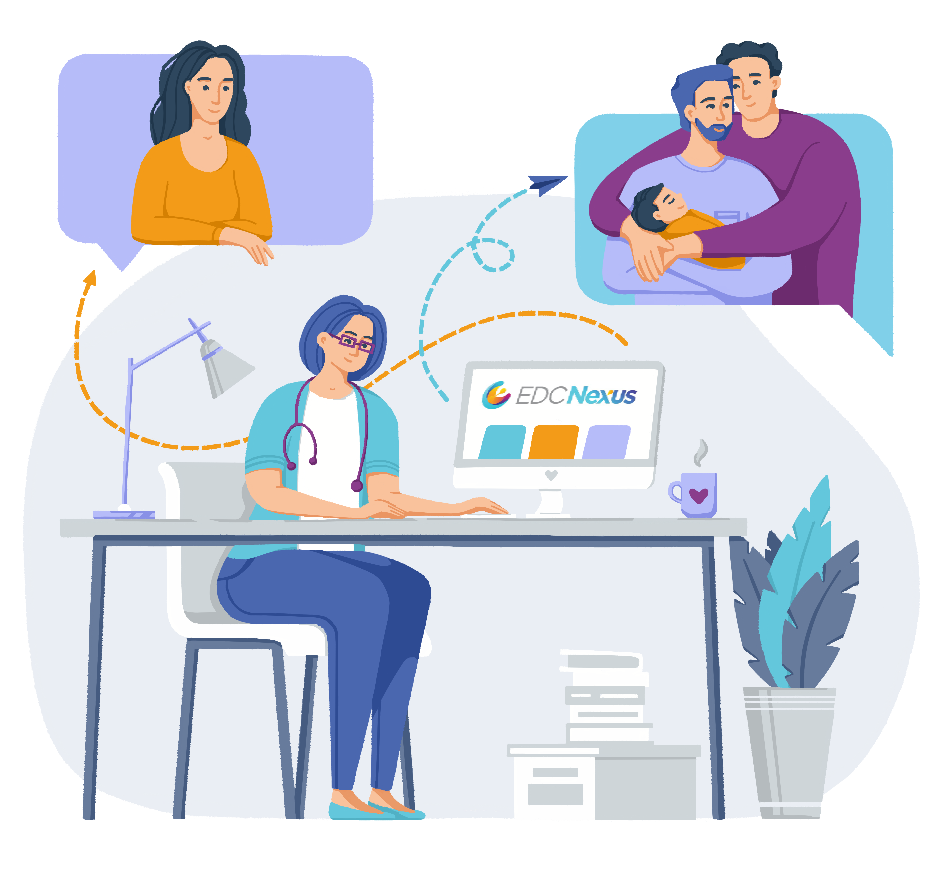
The Process of Becoming an Egg Donor: A Step By Step Guide
Egg donation is one of the most precious gifts you, as a healthy young woman, can offer intended parents wishing to build their family. Many couples, and individuals, who undertake third party treatment, have been on their “journey to parenthood” for years, suffering repeated failures and overwhelming heartbreak. While others, recognizing they have always needed a donor (and potentially a gestational surrogate), arrive at this fertility crossroads with no less commitment to having a baby. As an egg donor, you are providing a path to dream-fulfillment for others while simultaneously benefitting your own future, financially and psychologically.
When considering if you should become an egg donor, our step-by-step guide will help you understand how this all comes together. While it's worth mentioning that every program differs with respect to their acceptance criteria, testing requirements, and matching times, the process is similar enough that you'll have an overview of what takes place from your initial inquiry to your egg retrieval (and beyond).
The steps involved in being an egg donor are:
- Application
- Interview/Information Session
- Screening
- Matching
- Cycle Preparation (including Legal)
- Egg Retrieval
- Recovery
- What Now?
Step 1: Application

Online egg donor applications are extremely comprehensive; most consisting of 100+ questions designed to gauge your eligibility based upon different sets of criteria such as: age, BMI, lifestyle choices, personal & family medical history, FDA standards – just to name a few. Most fertility clinics and agencies adhere to the American Society of Reproductive Medicine's (ASRM) guidelines as a basic measure of acceptability and build on these according to their own standards. You will discover variations with every program. For example, most clinics insist donor's ages range between 21 and 32 years, however some will accept candidates as young as 18, and as old as 35. Most applications include of the following sections:
- Basic demographic information
- General health reporting
- OB/GYN medical data
- Education/career goals
- Personality traits, hobbies, talents
- Motivations for donating
- Complete report of biological family medical and mental health history
- Gallery of current & childhood/baby photos (some programs request short videos also)
If you would like to prepare for your egg donor application, you can find tips in our Egg Donor's Guide to Getting Your Donor Application Accepted article.
Step 2: Interview/Information Session

After your application is reviewed and approved by the fertility clinic or egg donor agency, you will be contacted to arrange for an in-person or virtual interview. At this time, your coordinator or case manager will discuss your questionnaire; you may be asked to supply additional information regarding your family health history, consider your availability for screening and appointments, and talk about your willingness to be in contact with donor-conceived families.
Your coordinator will also discuss what you can expect from this process moving forward. They will make sure you have the time to donate – as this is an intensive process requiring many appointments and an egg retrieval surgery – and confirm you have the support of your family & friends.
Additionally, this is your chance to interview the coordinator and determine this is the best fit for you. You may feel more relaxed about the meeting if you approach it as an "information session" rather than an interview. You should leave feeling confident you are in the best possible hands.
Step 3: Screening

Provided you feel comfortable moving forward, there will be a series of medical appointments and additional evaluations to complete before you are accepted as an egg donor. The goal is to assess your potential and ensure you are a qualified candidate for egg donation from a fertility, genetic and psychological perspective. The most standard screening protocol includes:
- General physical exam
- Gynecological exam (including a vaginal ultrasound to examine your ovaries)
- Blood and urine tests (to assess fertility hormones and drug & nicotine testing)
- Collecting your family medical history for a genetic consultation
- Genetic carrier screening
- Psychological consultation and evaluation
Step 4: Matching

As soon as you are officially approved by the fertility clinic or agency, your profile will be created and subsequently searchable on your program's egg donor database.
The next steps vary slightly depending upon whether you are participating in a "fresh" or "frozen" donor cycle, but in most situations, you will be viewable on a secure website where prospective parents are approved to create their own account in order to access the private database. If you are working with a program that conducts predominantly fresh cycles, you will be contacted when an Intended Parent selects you to help them create embryos. Then you will prepare for egg retrieval. If you are affiliated with a frozen egg bank, you may be prepped to undertake an egg retrieval and your eggs will be reserved by Intended Parents after they are cryopreserved. Many programs conduct fresh and frozen cycles.
Step 5: Cycle Preparation (including Legal)

Before preparing for your egg retrieval, you will be referred to a reproductive attorney who drafts and reviews legal contracts in order to provide you with protection and delineate the rights and responsibilities of both parties (Intended Parent(s) & you) throughout the process.
Once legal clearance is received by your fertility clinic, your coordinator will create a "cycle calendar" with dates for your monitoring appointments and medication protocol.
During the first 10 to 12 days of your donation cycle, you will take hormonal medications that help stimulate your ovaries and mature your eggs (you can read about the most common medications for egg donors here). These medications are given via injection that you administer yourself (but they are relatively painless and easy to do). Don't worry, you will receive instruction on how to give yourself the shots before doing so on your own.
Prior to your egg retrieval, there are a series of ultrasounds to monitor the number and size of follicles (eggs) on your ovaries, and blood tests to check your hormone levels. Because the possibility of falling pregnant is very high during stimulation, It's important to abstain from intercourse prior to, and immediately following, your egg retrieval.
Step 6: Egg Retrieval

Once your doctor decides your eggs are ready, you will be directed to administer your final injection, a "trigger shot" of hCG (a hormone that will work to mature your follicles). Timing is critical because hCG should be injected approximately 34 to 36 hours before your scheduled egg retrieval. If the shot is given too early, or too late, this can negatively impact the quality of your eggs. You will be provided with very specific instructions on how to prepare for the day of your egg retrieval.
The egg retrieval is a minor surgical procedure and usually takes around 15 to 20 minutes from start to finish. You will be placed under an anesthetic during the entire procedure, so you will not experience any discomfort or pain. Your doctor will use ultrasound to locate your ovaries and the clusters of tiny follicles that house mature oocytes. The doctor gently guides a needle, attached to a catheter, through the vaginal wall and the eggs will be extracted using light microscopic suction.
Next, the eggs can either be frozen at this point, or combined with the intended father's (or donor's) sperm to create embryos (which may be transferred at this time or frozen for chromosomal testing and transferred at a later time).
Step 7: Recovery

After the procedure, you will most likely feel groggy after being under anesthesia. Following a recovery period, you will receive post-procedure instructions on how to care for yourself. A friend or family member is required to transport you home, or to your hotel, and stay for 24 hours to make sure you are recovering properly. It is important to note: you will not be able to drive yourself or take ride-share transportation following surgery.
Immediately after the procedure, it's normal to experience mild stomach cramps and discomfort. The anesthesia takes 24 hours to leave your body completely and for the first day or two after, there are some common side effects you may experience. These side symptoms can range in severity, but they are usually mild and include:
- Abdominal bloating and minor cramping
- A small amount of bleeding from the vagina (spotting) for 1 to 2 days
- General discomfort and soreness in the abdomen and vaginal area
- Constipation
The best advice is to take it easy for a couple of days following your surgery (no strenuous exercise or heavy lifting) and you should start feeling like yourself again after 48-72 hours. However, it's important to watch for any signs of OHSS, a very rare yet serious occurrence requiring immediate medical attention. Compensation is usually provided to you immediately following your egg retrieval.
Step 8: What Now? EDC Nexus: Egg Donor Registry

Now that you've fully recovered from your egg donor cycle, what happens next? Depending upon the type of arrangement you have with your Intended Parents, there are a couple of paths: You may have participated in an "open" or "known" cycle that offers the possibility of future contact with your donor-conceived family. Alternatively, you (and/or your program) may default to a "de-identified" donation that discourages the clinic, or agency, from authorizing an exchange of personal information between parties. Truthfully, with the world of genetics constantly advancing, and the ever-expanding convenience of in-home DNA testing, the notion of a completely "anonymous donation" is a thing of the past. Not to mention, Colorado recently enacted legislation banning anonymous egg and sperm donation starting in 2025; other states are sure to follow and "identity release" may eventually be mandated for donor-conceived offspring seeking this information.
The good news: your team at EDC has created a unique egg donor registry designed to offer all parties the ability to reciprocate medical updates on a regular basis with the goal of establishing a safe and secure environment; one where donors and donor-conceived families can share this vital data for the health and well-being of everyone involved, now and in the future. Additionally, for those parties desiring to connect on a more personal level with one another, EDC Nexus provides a private messaging portal where communication, and updates, can take place unobtrusively.
In Conclusion...
The journey to family-building - through third party reproduction - is a richly intertwined tapestry with fabrics from many lives. If you are contemplating egg donation, it is vital to consider the significant commitment not only during the process and procedure, but for your lifetime. As long as you are fully aware of the potential benefits, as well as ramifications, you can make an empowered and informed decision. By choosing to donate your eggs, you'll be rewarded with the knowledge you have offered the most precious gift of all: LIFE!
Jenna Lake
Jenna Lake is co-founder of EDC Nexus, a unique registry developed to support Intended Parents, Egg Donors and Donor-Conceived Offspring — identified or de-identified — through a private online database providing medical updates and a mode of communication.
Jenna is the proud mother to a teenage, egg donor-conceived son. Her journey through third party reproduction directly launched a 15+ year career overseeing one of the largest clinic-led egg donor programs in the United States. After matching more than 3,000 cycles, and witnessing the ever-increasing demand for donor-conceived families to connect with their genetic and biological stories (and donors to stay informed of their contribution), Jenna helped to create a secure means of exchanging vital information and ensuring greater peace-of-mind on many fronts.
Currently, Jenna also serves as Operations Director at Egg Donor Connect. She is a past board member of Parents via Egg Donation, former consultant for a surrogate agency, and the author of several articles focusing on Egg Donors and Intended Parents. Jenna can be reached through her LinkedIn profile, or via email at jenna@eggdonorconnect.com.
Interested in becoming an egg donor?
Visit our directory of the best clinics & agencies to donate in the U.S.
Related Becoming an Egg Donor Articles to Guide Your Journey
“Honesty is the Best Policy” - 7 Reasons to be Truthful as an Egg Donor
For both prospective parents and donors, egg donation is an amazing journey filled with emotions and expectations. However, it is essential to recognize that this path relies heavily on trust and honesty. Being truthful on an egg donor application – and during the screening process – helps to solidify the health, safety, and mental well-being of everyone. In this blog, we will explore important reasons why an egg donor should be as transparent and forthright as possible every step of the way.
8 Questions for Egg Donors to Ask A Clinic or Agency
Are you applying to be an Egg Donor? 8 Questions you – as the applicant – should ask an Egg Donor Program.
Requirements for Becoming an Egg Donor
This article covers the key requirements to becoming an egg donor.
The Egg Donor's Guide to Getting Your Donor Application Accepted
So you're thinking about becoming an egg donor…you’ve conducted research, identified the right fertility clinic where you can donate your eggs and help Intended Parents build their families. You've been access to their full online application only to feel suddenly overwhelmed with the amount of information needed & time required to complete your profile.